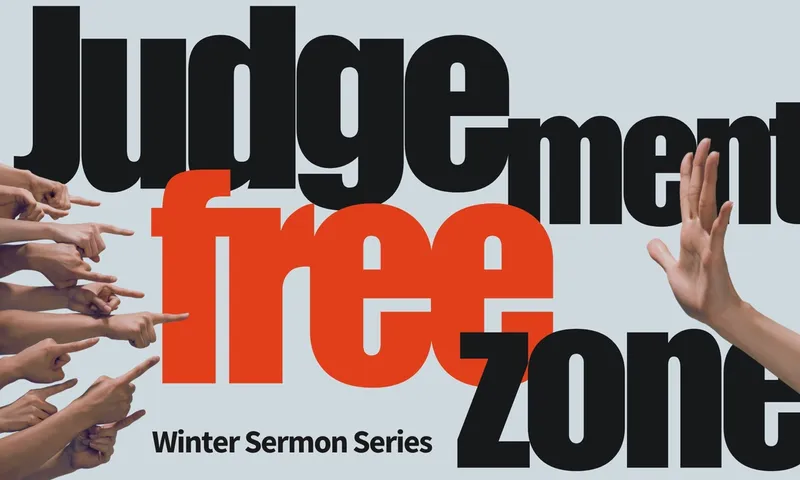Radical Sayings of Jesus: Small Group Resources

Look here for all your 'Go Deeper' Resources in our Radical Sayings of Jesus Sermon Series

A digital version of our Radical Saying of Jesus guide can be viewed or downloaded by clicking here.
Week 1 | Turn the Other Cheek
Scripture: Matthew 5:38-42
This Week's Go Deeper Resource: Dale Bruner's Commentary
“We should notice first how good the ancient commandment was that Jesus now revises and puts out in a new edition. The old eye-for-an-eye commandment made two positive contributions: It checked wild revenge, and it taught justice. Prior to this commandment it was possible that even a slight injury to a member of one’s family could be avenged by the maiming or even killing of one or more persons in the offending family… Moses said that it must not be that way in Israel. The punishment must fit the crime. Therefore an eye—not a life—for an eye, a tooth—not a maiming—for a tooth. This OT commandment was civilized, advanced, and just…
“Jesus’ New Command has sometimes been overinterpreted to say that Jesus now teaches that it is sin for governments to defend citizens (cf. Tolstoy). The results have been neither fair to the Command’s meaning nor the community’s welfare…"
“As in Jesus’ earlier treatment of God’s Commandments against killing and adultery, this commandment against injustice, or an eye for an eye, is not abrogated for governments, but it is superseded for disciples. Jesus’ New Command is for disciples who want to follow Jesus’ way of life” (Bruner pp. 247-248).
Go Deeper Questions:
- How does knowing the context behind the OT commandment color the way you interpret Jesus’ commandment?
- Bruner mentions Leo Tolstoy’s (19th century Russian writer) absolute pacifism as an example of an “overinterpretation” of Jesus’ New Command. What are some ways we might overinterpret this passage? What are the dangers?
Week 2 | Be Perfect
Scripture: Matthew 5:46-48
This Week's Go Deeper Resource: Raymond Brown's Introduction to the New Testament
“The Matthean Jesus presents God’s demand not by dispensing with the Law but by asking for a deeper observance that gets to the reason why its demands were formulated, i.e., to be ‘perfect as your heavenly Father is perfect’ (5:48). The polemics of Matt’s time are illustrated by the evaluation of Jesus’ righteousness as exceeding that of the scribes and Pharisees. In the series of six slightly variant, ‘You have heard it said… but I say to you’ clauses, Jesus dares explicitly to modify or correct what God said through Moses. He makes the demand of the Law more penetrating (e.g., by prohibiting not only killing but anger, not only adultery but lust); he forbids altogether what the Law allows (no divorce, no oath); and he turns the Law to its opposite (not retaliation [Deut 19:21], but generosity to offenders; not hating enemies [Deut 7:2] but loving them). In other words the Matthean Jesus, speaking more confidently than any 1st-century rabbi, implies that he is more authoritative than Moses, and seems to legislate with all the assurance of the God of Sinai” (Brown 179).
Go Deeper Questions:
- Historically, some Christians have had a tendency of saying Jesus came to replace the existing Jewish Mosaic Laws (this is called supersessionism, considering the NT to be superior or above the OT instead of deeply intertwined and dependent on each other—we all know what trouble that can get us into!). How is Jesus respecting the existing Jewish tradition and Law in his “you have heard it said… but I tell you” statements?
- As Christians, we believe that Jesus is fully divine and fully human, more than a prophet or a teacher. When Jesus tells this Jewish audience to be perfect as God is perfect after intensifying all of the Mosaic Laws, how do you think they might have reacted? What would this have meant for them in their everyday lives and for their faith?
- We get a glimpse of their reaction in Matt. 7:28-29, “Now when Jesus had finished saying these things, the crowds were astounded at his teaching, for he taught them as one having authority, and not as their scribes.”
Week 3 | Maybe Not All of You
Scripture: Matthew 7:21-23
This Week's Go Deeper Resource: Shane Claiborne & Tony Campolo's "Dialogue on Hell" (click here to read) From Red Letter Revolution (pp. 48-54). If possible, have one small group member read Shane's part aloud and another member read Tony's parts to best replicate the dialogue.
Go Deeper Questions:
- One implication of this passage in Matthew is that, potentially, not everyone who thinks they’re “in” is actually “in.” How do Shane and Tony bring this question to life in their “Dialogue on Hell?” What are the stances each of them take? How are they similar or different? Is one more compelling than the other to you?
- Shane says, “For me, I did not choose Jesus because I was scared to death of hell. Nor did I choose Jesus because I wanted mansions in heaven and streets of gold. I chose Jesus because he’s wonderful, absolutely wonderful. We can live without fear. After all, nothing can separate us from the love of God [Romans 8:38-39]. Nothing” (Claiborne & Campolo 50). Why did you choose Jesus? As people of the Reformed faith, we believe that Christ has chosen us, claimed us despite our own actions/words/feelings. But we do also make a choice to be an active member of the Body of Christ, to go to church to worship God, to be in community with other Christians (like small groups!), and to be good news to everyone we meet. So, why did you choose all of that?
Week 4 | Love Your Enemies
Scripture: Luke 6:27-36
This Week's Go Deeper Resource: Justo Gonzalez's Luke commentary (p.94) from the "Belief: A Theological Commentary on the Bible" series
“The Sermon on the Plain now turns to those who are ready to accept Jesus’ call to a greater righteousness, and is therefore introduced with the words, ‘But I say to you that listen.’ This may also be read as a further explanation of the last beatitude and its parallel woe, which have to do with the hatred of others toward the disciples. Significantly, when one compares this section in Luke with it’s parallel in Matthew, it is clear that Luke emphasizes the use of possessions, and that he wants to make clear that Christian love is not just a sentiment or a feeling, but also an attitude leading to concrete action: ‘do good to those who hate you.’
“This passage may be divided in two. The first part, verses 27-31, bases the action of the disciples on the Golden Rule, expressed at the end of the section: ‘Do to others as you would have them do to you.’ The second part goes further, basing that action on God’s very nature: ‘you will be children of the Most High; for he is kind to the ungrateful and the wicked. Be merciful, just as your Father is merciful.’ This is parallel to Matthew’s ‘Be perfect, therefore, as your heavenly Father is perfect’ (Matt. 5:48). While Matthew’s words have often been taken out of context as the basis for the theological claim about God’s ontological perfection [read: this is a claim about God’s perfection and nothing else], Luke’s leaves no room for such an interpretation. The divine perfection that the disciples are to imitate is the perfection of an all-embracing mercy. Furthermore, even though we often tend to think that the basis for the Christian ethics of love is the Golden Rule, in the final analysis the basis for Christian ethics is the very nature and action of God. As Luke Timothy Johnson declares, ‘The ‘golden rule’ of ‘do as you would want done’ is not the ultimate norm here, but rather, ‘do as God would do.’”
Go Deeper Questions:
- Luke is very concerned about wealth. Immediately before this passage on loving your enemy is his list of blessings and woes, in which he explicitly calls the poor and hungry blessed and condemns the rich and full. He picks this thread up in our passage for this week—it’s clear that for Luke’s Jesus, loving your enemy has a material cost. Lend expecting nothing in return. Give to the poor. These are actions, not just warm, fuzzy feelings. What do you think about this? Where in your life have you seen love in action like this?
- The second half of this passage starts with Jesus saying it’s easy to love those who love us. The real task is to love those who hate us. So it’s not only about loving those who we see as enemies, but loving those who see us as the enemy. How does that nuance change this passage for you?
Week 5 | Give It All Away & Follow Me
Scripture: Matthew 19:21-24
This Week's Go Deeper Resource: The Difficult Words of Jesus by Amy-Jill Levine (pp. 6-8)
“Mark does not give us many details about the would-be disciple, other than that he has many possessions. We might see him as a person of privilege who is used to getting what he wants. In Mark’s version, which is longer than the retelling in Matthew and Luke, he runs up to Jesus and kneels before him. Jesus is not in a house or in a synagogue, where he could receive people who needed his healing, his exorcism, his blessing, his wisdom, and where his disciples would be in a better position to direct traffic. He is outside, on the way, and the fellow stops him by kneeling in front of him. He gives Jesus little choice in the matter of whether to listen to him or not. He will be heard."
“Matthew and Luke, in recounting the same story, provide embellishments even as they remove some of Mark’s details. Matthew 19:20, 22 adds that the fellow was a ‘young man.’ The detail makes the fellow more sympathetic: this ‘young man’ did not yet have a socially responsible position; others were not dependent upon him; he had no wife and no children. Perhaps he had yet to garner the reputation that he wanted, whether for profit or for piety. Perhaps he has the idealism of youth, the sense that he can fix the world quickly, with a protest sign, a sit-in by the dean’s office, a well-placed tweet. He also has time to grow in wisdom, if he can develop the capacity for patience…
“Luke takes the identification in another way by calling this fellow an archōn, Greek for ‘ruler’ or ‘first one’ (Luke 18:18). Luke, who likes the term ‘ruler,’ uses it five other times in the Gospel to refer to people with economic or political influence, such as Jairus, the archōn of the synagogue whose daughter Jesus raises from the dead (8:41)... We might think of their modern equivalents as people on the A-list, people with social capital, people who have the community’s attention and respect: economic leaders, doctors and lawyers, elite athletes… we know who they are.”
Go Deeper Questions:
- Amy-Jill Levine gives us a picture of the three ways the Gospel writers retell the story of “the rich, young ruler.” We tend to talk about this story as an amalgamation—the man is rich AND young AND a ruler, but each Gospel writer chooses only one or two of these monikers for the man who asks the question, “Teacher, what good deed must I do to have eternal life?”
- While wealth is named or implied in each retelling, how do youth and authority change the meaning of this passage? What is Matthew pointing out to us about youth, wealth, and eternal life? What is Luke telling us about authority, wealth, and eternal life?
- Immediately following our passage, Matthew 19:25-26 reads, “When the disciples heard this, they were greatly astounded and said, ‘Then who can be saved?’ but Jesus looked at them and said, ‘For mortals it is impossible, but for God all things are possible.’”
- Soteriology is the theological word for “what we think/believe about salvation.” What is Jesus telling us about salvation? What can we say about Jesus’ soteriology?
Week 6 | Hate Your Mother & Father
Scripture: Luke 14:26-27
This Week's Go Deeper Resource: The Difficult Words of Jesus by Amy-Jill Levine (pp. 42-43)
“Yet this concern for turning love on or off tells us that Jesus’s command to ‘hate your mother and father’ cannot be taken literally. Moreover, it should not be, since Jesus elsewhere demands that his followers abide by Torah, including honoring their father and mother (see, e.g., Luke 18:20). Indeed, Luke tells us that when Mary and Joseph recover their twelve-year-old son from the Temple, after their frightening ordeal in which they thought they had lost him, that ‘he went down with them and came to Nazareth. And was obedient to them’ (Luke 2:51). This is not a sign of hatred of parents.
“When Jesus tells his disciples that they are to hate the members of their family, he is not telling them to treat their parents as their opponents had treated them. He is not telling them to treat their children as Babylon treated the kingdom of Judea in the second century. If he were, Peter’s mother-in-law never would have gotten that healing, and Jesus’s own mother and brothers would not be part of the Jerusalem community gathered in his name. That natural love, that learned love, continues.
“But only by using the language of hate, with all its viscerally negative implications, can he show how demanding the call to the kingdom of God is. Jesus’s demand for loyalty is that strong, that singular in focus, that the best way he can express it is to speak of the unnatural, unethical idea of hating one’s parents, siblings, and children.”
Go Deeper Questions:
- What do you think of Levine’s take on “Hate your mother and father”? Is it compelling? Does it clarify this radical saying of Jesus? Why or why not?
- What do you make of the contradictions between the passages that tell us to respect our parents Levine mentions and Jesus’ use of hating our parents?
Week 7 | Outer Darkness
Scripture: Matthew 25:30
This Week's Go Deeper Resource: The Difficult Words of Jesus by Amy-Jill Levine (pp. 103-106)
“The Scriptures of Israel barely mention postmortem punishments and rewards because their focus is on life: what we learn from the past, what we do in the present, what we hope for the future. Ancient Israelite thought, at least as can be reconstructed from the Hebrew texts, viewed postmortem existence for everyone as in Sheol or Abaddon, a shadowy type of half-life: dark, away from God, away from either pain or pleasure.
“Sheol, the more popular term, appears as early as Genesis 37:35, Jacob’s mourning when he hears the false report that his beloved son Joseph had been killed: ‘All his sons and all his daughters sought to comfort him; but he refused to be comforted, and said, ‘No, I shall go down to Sheol to my son, mourning.’’ Sheol is where the dead go, righteous and unrighteous alike.
“Here we have yet another translation problem. The early Greek translators of the Hebrew text rendered Sheol as Hades, both the name of the god of the dead and the underworld kingdom that he rules. Hence, when Peter paraphrases Psalm 16:10 in Acts 2:27 his comment, ‘For you will not abandon my soul to Hades,’ the underlying Hebrew is a reference to Sheol.
“With the translation comes baggage. In Greek mythology, Hades is the place where… Sisyphus must roll a boulder up a hill, only to have it tumble down, time after time… There’s a punishment-fit-the-crime component to these stories, and they do spark the imagination.
“Translation even impacts how often we find references to ‘hell’ in our Bibles. The King James Version translates the Hebrew term Sheol as ‘hell.’ … Thus, Christians reading the KJV and translations dependent on it will find references to ‘hell’ permeating their Old Testament; Jews, reading the Tanakh, the Bible of Judaism, will not.
“Our synonym for Sheol is Abaddon. The name in Hebrew means ‘place of destruction,’ and its appearances in the Hebrew texts all relate to Wisdom literature. Despite the name Abaddon, the references speak more to matters of divine power than to postmortem life…
“Past this early biblical period, Abaddon takes on more the sense of a person rather than a place… that personification then enters the New Testament via Revelation 9:11, which reads, ‘They have as king over them the angel of the bottomless pit; his name in Hebrew is Abaddon, and in Greek he is called Apollyon.’
“Finally, Gehenna, usually translated as ‘hell,’ comes from the Hebrew word gai (‘valley’) and Hinnom, the name of the fellow who owned the garden… The first reference to this site is Joshua 15:8a, ‘the boundary goes up by the valley of the son of Hinnom at the southern slope of the Jebusites (that is, Jerusalem).’ …
“The Tanakh thus has no notion of hell in the sense of eternal punishment for the wicked, and it has very little to say even about the fate of the righteous. Daniel and passages in Isaiah 24-27 open up the possibility of resurrection of the dead, so that by the time of Jesus, in the first century, resurrection—an idea promoted by the Pharisees—was the popular belief among Jews. With resurrection came the idea of a final judgment, and thus final sentences” (Levine 103-106).
Go Deeper Questions:
- This section is what we call a “word study.” It’s when we take a word in another language and try to understand how it’s used wherever it shows up in a text and in its translations. What becomes apparent from the word studies of “Gehenna,” “Abaddon,” and “Sheol” from the original Hebrew, to Greek, to English? How does translation play a part in the evolution of these terms and their meanings?
- Does this information change or challenge what you think about hell? Why or why not?
Week 8 | Slave of All
Scripture: Mark 10:44
This Week's Go Deeper Resource: Dr. C. Clifton Black's Abington New Testament Commentaries: Mark
“Status relations determined by the Son of Man upend conventional expectations (v. 43, essentially reiterating 9:35). In 9:36-37 the ‘servant’ (diakonos) is aligned with ‘a little child’ (paidion); in 10:44 the ‘servant’ slides into ‘everyone’s slave’ (panton doulos)—an even more intensive self-derogation. Though slavery in antiquity connoted different things, depending on one’s social station, the privileged regarded slavery a despicable form of life. In Mark 10:44, by contrast, the status of slavery has become radically normative for Jesus’ disciples. Unlike James and John (and the rest of the Twelve), whose imagination has shrunk to a client’s bid for promotion by a patron, the Son of Man has come not to be served but to serve (10:45a). That service is giving his life as ‘a ransom [lytron] for many’ (10:45). This metaphor is contextually significant. In the OT a lytron is the compensation required to redeem a slave or prisoner of war out of bondage (e.g. Exod 21:8, 30; Lev 25:47-52; Num 3:45-51). In Mark the Son of Man does not present himself as a new master; he is, instead, the release of others from enslavement (14:24b)” (Black 233).
Go Deeper Questions:
- Compare and contrast Levine and Dr. Black: what do these biblical scholars agree on about the use of this term “slave” in Mark 10:44? Where do they differ?
- Dr. Black used to tell our class that Mark’s Gospel has an underdeveloped atonement theory (the theological term for “what we think about how Jesus saves us”), but that it plants the seeds from other sources (Isaiah 43:1-7; 44:21-23, 52:13-53:12) and for later writers to develop further (Romans 3:23-25a; Hebrews 9:12, 15; 1 Peter 1:18-19): that seed is this term lytron or “ransom.” What do you make of this term? What does it mean to you that Jesus, in his dying, was the ransom for all of us?
Explore Related Resources
- Resources

Who Invited You: Small Group Resources
Visit this page for information and resources for our Fall 2025 Sermon Series.
- Resources

Fearless: Small Group Resources
Look here for all your 'Go Deeper' Resources for our 2025 Eastertide series: Fearless
- Resources

Judgement Free Zone: Small Group Resources
Look here for all your 'Go Deeper' Resources in our Judgement Free Zone Sermon Series